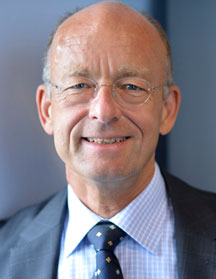Universal banks: cherish or fear?
As a major bank, ING is closely scrutinised and not seldom a topic of public debate. Lately, the structure of banks and the added value of universal banks are gaining attention.
On Tuesday 9 October, ING hosted a debate in the auditorium of ING House between representatives of the government, the academic world and the banks on the above subjects. Where the recently published Liikanen Commission report already put the European perspective into the debate, the soon to be installed Wijffels Commission will study this subject from a Dutch point of view. By facilitating the Sustainable Finance Lab meeting on universal banking, ING is demonstrating active involvement in the discussions about the structure of the Dutch financial sector.
Sustainable Finance Lab
The Sustainable Finance Lab was established in 2010 with the objective to increase sustainability in the financial sector in the Netherlands. This think tank, affiliated with the University of Utrecht, consists of a diverse group of scientists headed by former Rabobank CEO Herman Wijffels. The mission of the SFL: "A stable and robust financial sector which contributes to an economy that serves people without depleting its environment".
One of the topics that SFL concerns itself with is the structure of banks. Earlier this year, the SFL already issued several recommendations concerning these topics to the programme committees of the political parties, such as separating the essential public functions of banks (including payments, savings and loans), and banning proprietary trading.

Wilfred Nagel, ING Group Chief Risk Officer
Universal banks: cherish or fear?
The theme of the meeting at ING House was 'Universal banks: cherish or fear?'. The audience that came in large numbers listened attentively to Arnoud Boot (University of Amsterdam), Kees Vendrik (Dutch Court of Audit) and Wilfred Nagel (CRO ING Group) who each presented their views on universal banking.
Arnold Boot, a potential candidate for the Wijffels Commission, said that the Liikanen Commission report was a good starting point for the Wijffels Commission to build on. He noted that the financial sector was still far from stable, and that it was about time that "the dialogue with bankers got on the way".
Next, Kees Vendrik, vice-president of the Court of Audit, provided insight into the financial sector as a risk for public finance. He argued that the Dutch financial sector with its four major systemic banks (ABN Amro, ING, Rabobank, and SNS) is very large in relation to the GDP for a small country such as the Netherlands.
Wilfred Nagel, ING Group Chief Risk Officer, cast a different light on the matter. He stated that Dutch banks by nature focus on the traditional banking activities (such as savings and lending) and that proprietary trading is very limited. Dutch, and many European, banks cannot be compared with pure investment banks such as Goldman Sachs or Morgan Stanley. Wilfred Nagel also argued that universal banks rather add value to the economy and not by definition at a higher risk, precisely because they can offer a wide range of products and services.
Plenary discussion
After the three presentations, it was time for discussions with the audience. Where at previous SFL-meetings emotions often gained the upper hand, this time the debate – although sharp – was also substantive and rational. The interdependence in the financial sector immediately became apparent, because subjects such as the controversial tax on financial transactions and, in particular, the problematic Dutch housing and mortgage market were also addressed.
An hour of discussions was far too short to address all topics adequately, let alone to find solutions to them. Even so, the event was a success, with an open dialogue conducted from the perspective of common interests.
Any questions? Please contact Arjen Heida, Manager Stakeholder Engagement ING Group at +31 (0)20 576 4315 or arjen.heida@ing.nl or visit the website of the Sustainable Finance Lab.
The entire evening can be viewed on http://sustainablefinancelab.nl/programma/
